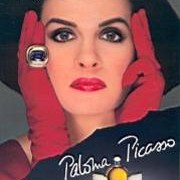I’ve made a series of videos about synthetics in perfumery–from a perfumer’s perspective. I would like to explain why certain synthetic aroma-materials have become important in modern perfumery and what effects they create. The video I share today is the first in the series, and it will offer an overview of the topic as well as talk about one of the most important synthetics. The second video will be released next week.
If you have any suggestions on the materials you would like me to cover or specific topics, please let me know. I note down all of your requests. Thank you!













17 Comments
Trina: I enjoy your videos a lot and this video is also great. I look forward to the second part. December 14, 2020 at 11:07am
KATHERINE BERRY: I agree here. I am very interested in this subject, because I have acquired many vintage scents, but I like current versions of classics; I am sure they have incorporated the new ingredients. December 14, 2020 at 3:06pm
Tara C: I have problems with a lot of the current piercing woody-amber notes used, would love to see an end to this trend. Thanks for the videos! December 14, 2020 at 12:38pm
Patricia Devine: Thank you. This will be very interesting. I would love to know more about aldehydes, isobutylquinolone, Iso E Super, Calone and Cashmeran, if you have time please. Also, how do the different synthetic sandalwoods differ from one another and from the real thing? December 14, 2020 at 2:51pm
Peter: Mahalo for this building block video featuring synthetics. What happened to the luscious Nitro Musks? December 14, 2020 at 2:56pm
Fazal: I have frequently noticed in the perfumery community that too many people blindly jump on the critic bangwagon in order to appear enlightened. One example is the delusional myth that creativity and innovation primarily happens in the niche perfumery while I think that the actual truth is the exact opposite and another example is bashing of synthetics.
I am all for synthetics because there are only so many types of natural smells in the world. It is the synthetics that expand the boundaries of creativity and give us new types of smells that we would have never encountered otherwise either because such smells don’t exist in the real world or if they do, they are drowned by other more perceptible molecules in natural essences (for instance, not all molecules in rose essence are equally noticeable by a human nose).
If I have to choose between either niche or designer perfume category, I would choose designer, and if I have to choose between perfumes made of only natural essences or perfumes made of only synthetics, I would choose the one made of only synthetics. Thankfully, we don’t have to make these strict choices in the real world. I engaged in this hypothetical example just to make the point that the loudest critical voices in perfumery, as in many other forms of art & culture, are often of those with the least knowledge and understanding. December 14, 2020 at 5:08pm
Deanna Wisbey: I enjoyed your comments!
Could you give a few examples of your favourite perfumes matching your point of view? December 19, 2020 at 6:22am
Fazal: When I create a list of the best perfumes I have ever smelled, they are almost entirely designers (provided we don’t care about the time element) such as dior homme, eau sauvage, opium, samsara edp, kouros, and so on. And when it comes to niche, there have been few good ones but the ratio of good ones to disappointments for niche has been higher for me than it has been for designers. Moreover, I have been astonished by the fact that too many niche perfumes have really been re-hashes of the ideas introduced by designer perfumes, some of them decades old. However, many niche fans don’t know that because they are chasing the latest releases so they have not smelled designer classics and that leads them to mistakenly assume that the niche perfume they like is a novel creation.
Talking about naturals and synthetics, there are only so many fruits or flowers or woods or whatever it is in the nature so there is a limit to how many smells nature offers us. On the other hand, the range of smells offered by synthetics is theoretically infinite. Chemistry will keep giving us new molecules in the future. If you have smelled old perfumes (original formulas from, let’s say 50s or 60s or even before that), you cannot help but feel that they smell similar to many of the natural perfumes made today. It makes sense because natural essences accounted for much bigger proportion of perfume formulas backs then as compared to synthetics. However, once the synthetics become a little more dominant players, the perfumes compositions became quite innovative. Hedione, one of the synthetics Victoria mentions, made Eau Sauvage, one of my top 3 favorite perfumes, possible. Without hedione, Eau Sauvage would have been rather a bland citrus perfume and something that would feel familiar. Despite being surrounded by the smell of lemon all my life, I still remember being blown away by vintage eau sauvage when I first smelled it because it smelled familiar but also novel at the same time. And as I learned later, hedione played a major role in Eau Sauvage’s creation. In other words, even the most genius perfume in the world could not give us a brilliant perfume like Eau Sauvage without synthetics because I don’t know if there is any natural essence that can mimic the effect of hedione in eau sauvage.
If you want to mimic the smell of, let’s say rose or jasmine, synthetics now made it possible to do that (granted they may not capture the whole complexity but they can at least mimic natural smells). On the other hand, I don’t think natural essences can mimic the smell of all synthetics. That is also why I said that in a world where we have to choose only between naturals or synthetics, I will choose synthetics because synthetics simply offer a much wider range of smells than naturals. Fortunately, we don’t have to make that choice now so we can enjoy both naturals and synthetics. I just do not get this bashing of synthetics because I think most of it is grounded in snobbery or ignorance and most often, both! December 19, 2020 at 6:38am
Fazal: Correcting the mistake in this one since it is not possible to edit original comment “And when it comes to niche, there have been few good ones but the ratio of good ones to disappointments for niche has been higher for me than it has been for designers.”
I meant to say that the ratio of good ones to disappointments for niche has been LOWER for me than it has been for designers. In other words, I am more likely to encounter a good designer perfume (new or old) than a good niche one. December 19, 2020 at 6:46am
Tourmaline: Hi Victoria,
Thank you for this fascinating video.
I would be interested to hear about the wonderful ionones (surprise!).
Also, it would be useful to know about the types of musks to which people are sometimes anosmic.
A few days ago, I sprayed Guerlain Aqua Allegoria Flora Rosa onto my skin, repeatedly. What did I smell? Absolutely nothing. I tried for a couple of days, but still couldn’t smell anything. This has never happened before with me. I had bought the bottle a couple of years earlier, along with Pamplelune and Pera Granita, and I can smell both of those. I wonder whether musks are playing a role here. December 14, 2020 at 5:30pm
Francoise Remington: Thank you Victoria!
It is so instructif December 14, 2020 at 6:12pm
Nick: I like how you have picked Hedione to discuss as an example! Found naturally in jasmine, it can also be manmade, and by itself does not explicitly smell of jasmine–perhaps jasminic (I personally relate to a more poetic ‘lemon blossoms of the Capri groves’) or celery-like in some form. But it fills the room with a lingering floral presence. And when I added it to 1% of the final neat fragrance, the non-floral accord was rounded and lifted!
Is it natural or synthetic? Does it taint my non-floral accord with a jasmine? That is a question I no longer ask. What matters to me is that it brings about this remarkable brilliance and lift. It s such a paragon without which many fragrances would feel encumbered and languid. December 14, 2020 at 6:38pm
Karina: Hello Victoria – hooray! Thanks for diving i to the synthetics. Really looking forward to your series. December 15, 2020 at 7:17am
Aurora: Such an interesting topic, thank you for this first instalment. I would very much like to learn more about cashmere wood, a note which usually ruins a perfume for me, it seems to have become so popular unfortunately. December 17, 2020 at 5:21pm
Victoria: I am writing it down! December 22, 2020 at 9:53am
Silvermoon: Hello Victoria! I enjoyed the video and especially your comparison of perfume composition to architecture. Looking forward to hearing more about the topic. December 18, 2020 at 4:31pm
Victoria: Thank you very much! December 22, 2020 at 10:02am